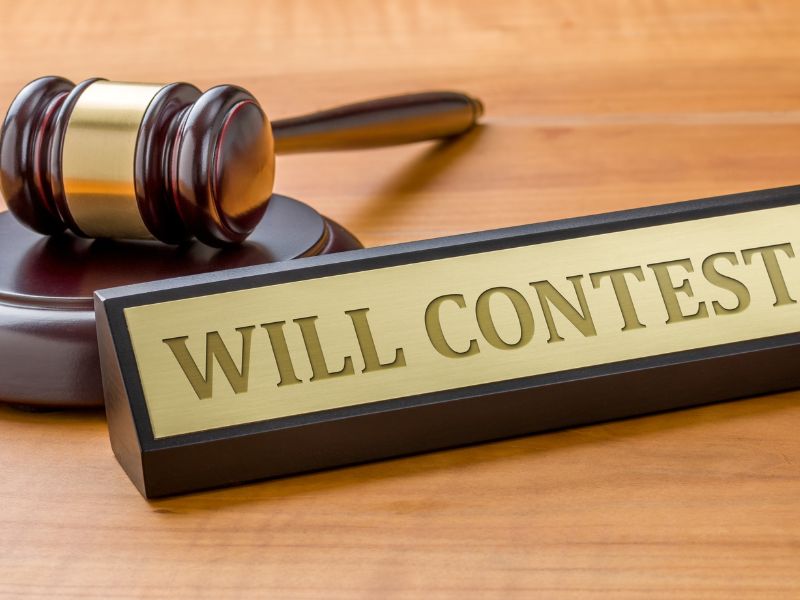
California probate courts presume that a will is valid and that its instructions for the distribution of the decedent’s assets should be followed as directed by the deceased individual. However, California law allows for legal challenges if a will is invalid or does not represent the decedent’s true desires.
Anyone who would be affected by the outcome of probating a will in California has the right to contest the contents of the will if they have valid grounds to do so. But it can be a lengthy and complicated undertaking.
How Often Are Will Contests Successful?
Fewer than a third of will contests in California are successful. However, the experience and litigation skills of the will contest attorney do make a difference. When a will contest is successful, it restores a rightful heir’s inheritance, which often translates to a comfortable retirement or a family’s financial stability.
An estate litigation attorney at the California law firm of Albertson & Davidson, LLP, can provide sound guidance about your prospects for a will contest if you have concerns about the validity of a recently deceased individual’s will. Our law firm has earned a reputation as skilled and aggressive contested will lawyers capable of handling the most complex trust and estate litigation. An experienced probate litigation attorney is ready to fight for you if you are an abused beneficiary whose inheritance is at risk.
Do You Have Standing to Contest a Will?
The probate litigation lawyers at Albertson & Davidson are ready to move forward with valid will and trust contests in California. We do not do this without thorough discussions with our clients. A will, as drafted by an estate planning attorney, may contain a no-contest clause. We would want to make sure our client understood the implications of a no-contest clause if they are considering a will contest.
To contest a will, you must first have legal standing. You must be a:
- Beneficiary named in the current will or a previous legally valid will signed by the decedent.
- Legal heir of the deceased person under California’s intestacy laws of succession.
- Creditor to the decedent who is owed money.
All of the decedent’s family members are interested parties, regardless of whether they are named in the will. The probate court will consider anyone named in a previous will filed by the decedent as an interested party in a will contest.
All interested parties will be notified of a petition to contest a will, and each of them has the right to make their own claims.
To be successful, you must persuade the court that the contested will does not reflect the desires of the deceased individual or it fails to meet California requirements and is, therefore, not legal.
Do You Have Grounds to Contest a Will?
Typical grounds for contesting a will include:
- Lack of mental capacity. The decedent must have been of sound mind when they signed the will. A will contest might show that the decedent was mentally incompetent (such as suffering from dementia) or under the influence of drugs or alcohol when they signed the will being contested. Advanced age, feebleness, or eccentricity are not grounds on their own for a lack-of-capacity claim in California.
- Undue Influence. You may be able to show that the decedent was pressured or manipulated into crafting a will that does not reflect their true desires and that benefits or damages a would-be beneficiary. Will contests often assert that a family member, a caretaker, or a companion of the decedent has exercised undue influence. Sometimes, the manipulation and pressure rise to the level of financial elder abuse.
- Fraud. Some will contests show that some form of fraudulent misrepresentation caused the decedent to draft certain provisions in their will that do not reflect their true wishes. This requires proof of a fraudulent act, not just evidence of motive or opportunity.
- Forgery: A will may have been drafted, signed, and filed by someone other than the decedent.
- A more recent will. If valid, a newer will takes precedence over an older one and should (but may not) explicitly state that it replaces all previous wills. Many people redraft their wills after major changes in their lives, such as marriages, divorces, and deaths of family members or others.
- Improper execution. There are strict procedural requirements for the legal execution of a will. A will that does not conform to California statutory requirements could be ruled invalid.
Can you substantiate any of the issues listed above? If you have knowledge of any fraud or malfeasance in the preparation of a will that you have standing to contest, Albertson & Davidson can help you gather documents, locate witnesses, file a petition, and present proof of your challenge in court.
Steps in Challenging a Will in California
- Once someone files to have the will in question admitted for probate, anyone with standing and valid reason to do so can file a petition to contest the validity of the will. This would occur at the county court in the county where the deceased had resided.
- After petitioning to block the probate process, you must attend an initial hearing and state your objections. You will then be given time to file a formal objection and will contest complaint. An experienced will contest attorney at Albertson & Davidson can prepare the petition, speak for you at the hearing, and handle other aspects of the case.
- If the court has admitted to probate the current will and ruled it legally valid, you have 120 days from the date probate was opened to make a written objection and file a petition asking the court to revoke its order. This petition must state your legal grounds for challenging the will.
- Once a will contest or another challenge to the administration of a decedent’s estate is opened, several stages of litigation follow. The probate court will encourage you to try to settle your dispute in mediation. If an agreement is possible, a probate court trial – and its time and expense – can be avoided. It is possible to settle a case up until the court enters a verdict.
If your case goes to trial, it will likely be heard by a judge in county court. The judge has 90 days after the conclusion of the trial to issue a decision.
Albertson & Davidson Can Help You Contest a Will
 If you have concerns about a recently deceased individual’s will that names or should name you as a beneficiary, you should consult an experienced probate litigation attorney at Albertson & Davidson, LLP. Our founding attorneys, Stewart Albertson and Keith Davidson, are skilled and aggressive trial lawyers who focus on complex cases involving trusts, estates, and probate issues. Albertson & Davidson offers legal guidance based on experience and personalized legal assistance.
If you have concerns about a recently deceased individual’s will that names or should name you as a beneficiary, you should consult an experienced probate litigation attorney at Albertson & Davidson, LLP. Our founding attorneys, Stewart Albertson and Keith Davidson, are skilled and aggressive trial lawyers who focus on complex cases involving trusts, estates, and probate issues. Albertson & Davidson offers legal guidance based on experience and personalized legal assistance.
Our lawyers have recovered more than $250 million in verdicts and settlements for deserving probate and estate litigation clients from throughout California. Contact us today for a free and confidential consultation. Our motto speaks to our approach: We stand. We fight. We win.

